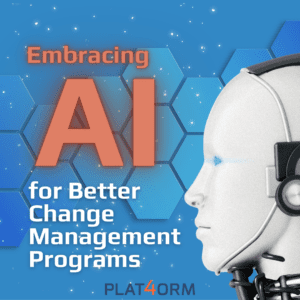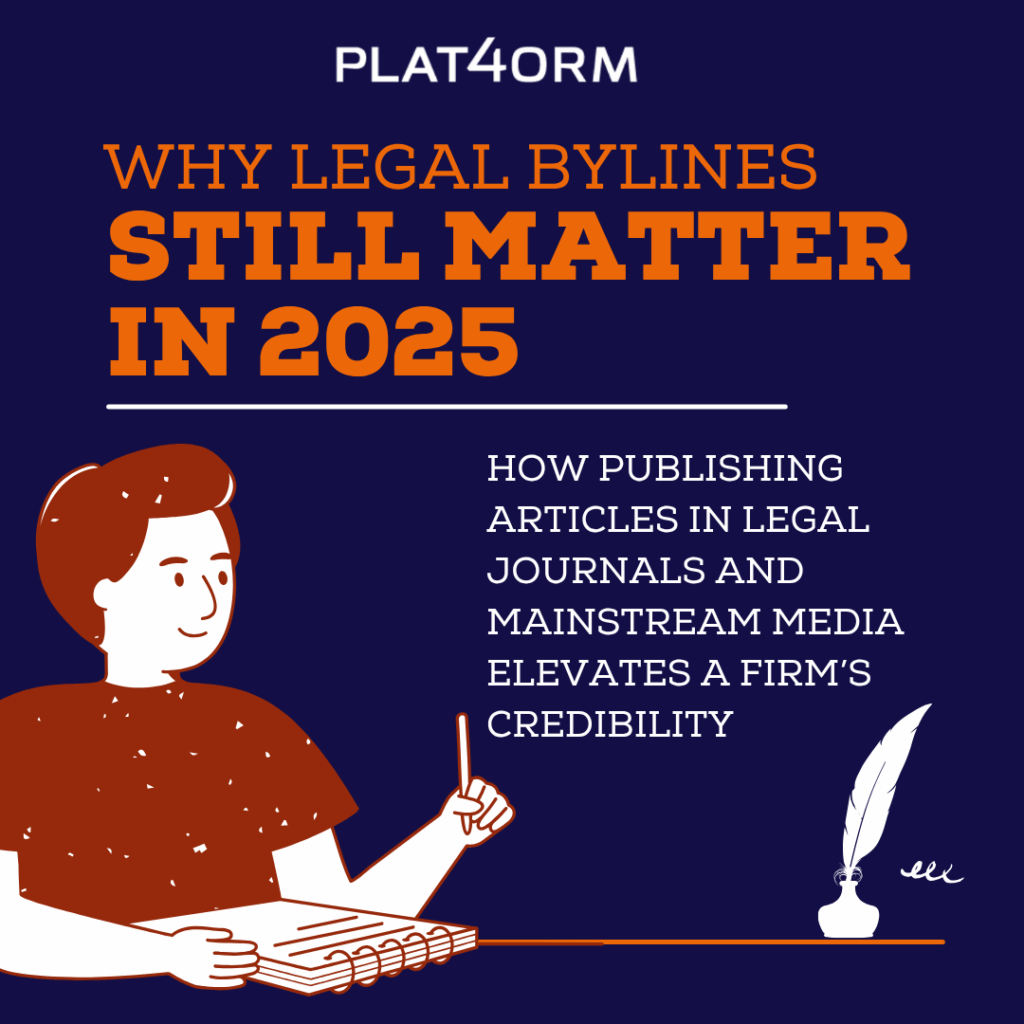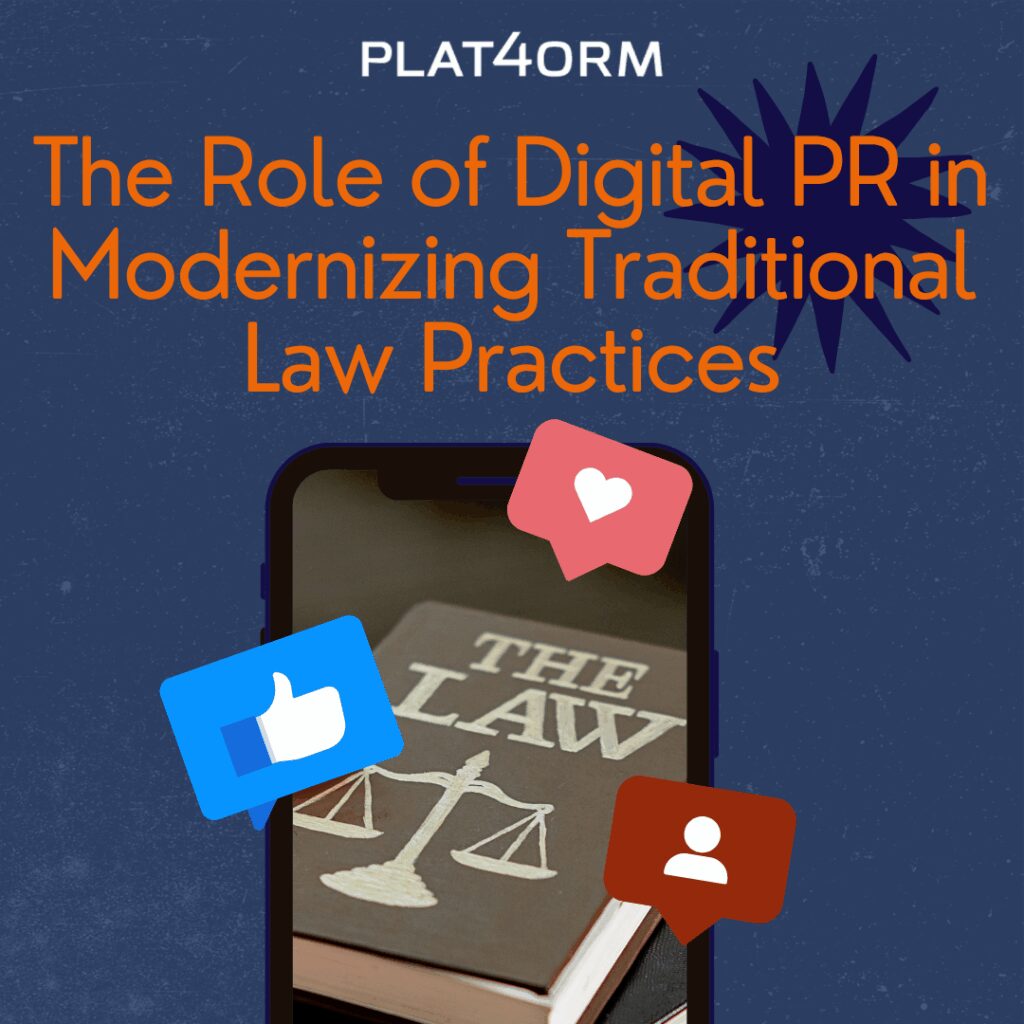
With today’s uncertain economy and with increasing consolidation in major industries, the emergence of artificial intelligence (AI) is poised to redefine how organizations perceive and execute change management. Today we’ll explore the profound impact that AI is having on change management and communications and explore a future where innovation and adaptability converge seamlessly.
AI’s Catalytic Role in Change Management
AI has been subject to much criticism, but to many, it is a beacon of promise. Beyond its ability to process data and help with business insight, AI is capable of translating insights into actionable strategies. With its prowess in data analytics, AI equips organizations with unprecedented clarity on employee sentiment, identifying potential roadblocks and refining communication strategies. This data-driven approach brings unprecedented precision, heralding a new era of efficiency in change management.
Tailoring Communication through AI Wizardry
Communications is perhaps the most important component of effective change management. To help manage events such as a CEO change, a technology upgrade, or a merger or acquisition, corporate communication teams are often enlisted to craft a strategic plan and a company narrative, and to support personalized communication to the different audiences the change affects. For example, if a telecom implements a new customer billing system, an effective change management program could be set up to ensure that internal staff and call centers get the roll-out schedule, as well as scripts that include information about the benefits of the change and how it is likely to impact customers, and any FAQs. Customers would get sequenced notifications via email, text or mail before, during and after the change.
AI is particularly well-suited to help with these tasks. It can be used to generate communications that are not just personalized but predictive, aligning seamlessly with individual or role-based preferences and with organizational objectives. By factoring in employee preferences, roles and historical interactions, AI can help forge a more profound connection between the workforce and the change agenda.
Chatbots: The Vanguard of Instant Gratification
With today’s focus on speed and immediacy, AI-driven chatbots are emerging as invaluable assets in the change management communication arsenal. These virtual sentinels offer swift, precise responses to employees’ queries, ensuring that information is readily accessible at the precise moment they are needed. This dynamic responsiveness not only saves time and resources but also ensures communication is consistent so every employee, regardless of their position or location, is well-informed and supported.
Organizations that can provide consistent and timely communication are able to unleash the full potential of their change initiatives, irrespective of scale. Employees feel heard, valued and empowered, leading to enhanced productivity, higher morale and, ultimately, the successful realization of transformative goals. In essence, chatbots become the cornerstone upon which a culture of openness, understanding, and adaptability thrives, making the difference between a smooth transition and a turbulent one. Change management is not just an operative process, it’s a foundational shift of your enterprise.
Predicting the Unpredictable: AI’s Insights into Employee Reactions
When implementing changes, it’s essential that companies have insight into the impact the changes are having on employees. This is another area where AI is having a powerful impact. It doesn’t just analyze data; it accurately predicts behaviors. By scrutinizing historical patterns and employee dynamics, AI can forecast potential reactions to impending changes before they happen. This foresight empowers organizations to proactively address concerns and quickly tailor communication strategies to mitigate resistance.
Imagine a company is restructuring its departments. Ordinarily, this change would be a time of heightened uncertainty and potential resistance. However, with AI’s data analytical and predictive capabilities, organizations can identify specific concerns that are likely to emerge and tailor their change management communication strategy to address these worries well before they escalate. This anticipatory approach transforms the narrative from managing resistance to fostering resilience, ensuring that each alteration becomes a stepping stone toward progress.
A Future Forged in AI-Driven Transformation
AI’s ability to predict behaviors can then create a workplace culture that thrives amidst change, propelling organizations toward a future where every transformation is met with readiness and adaptability. By integrating AI’s analytical skills, personalization capabilities and predictive insights into their communications programs, organizations will communicate more effectively and create more efficient change management strategies. In this fusion of innovation and adaptability, organizational transformation can be optimized to its potential.

